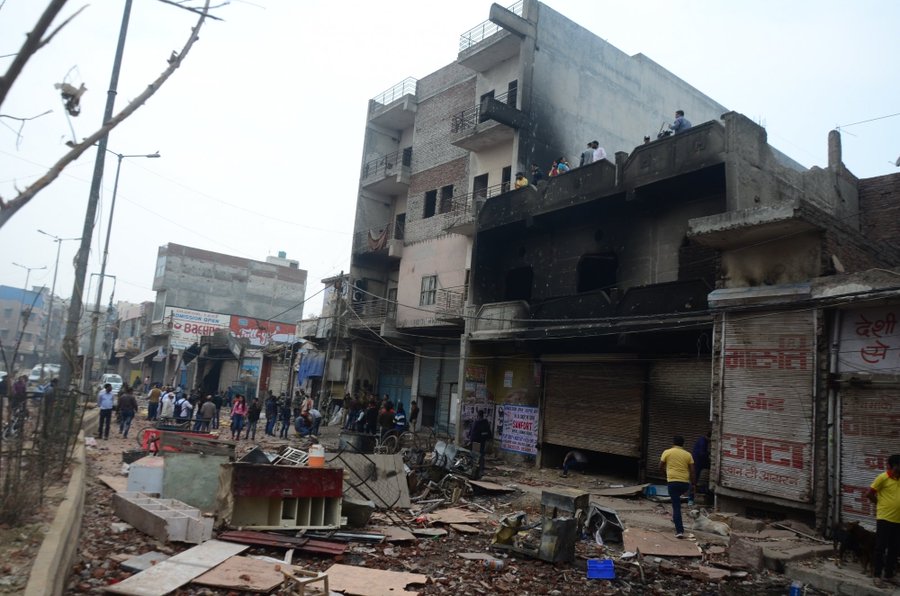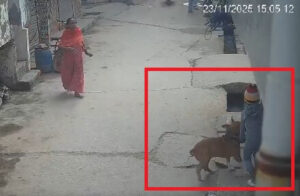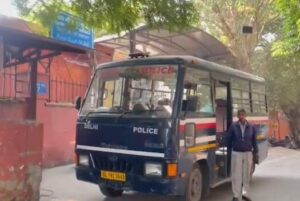Delhi riots a ‘terrorist activity’, says police in charge sheet

IANS FILE IMAGE
New Delhi (3 Min Read): The use of deadly weapons during the widespread riots in the national capital in February, which had resulted in the death of a police personnel and over 50 civilians, falls under the definition of a ‘terrorist activity’, the Delhi Police said in a supplementary charge sheet in a case related to the alleged larger conspiracy in the communal violence.
The supplementary charge sheet has been filed against former JNU student Umar Khalid, university’s research scholar Sharjeel Imam and Faizan Khan. The case pertains to conspiracy to incite the riots, which had left 53 people dead and 748 injured.
“In this case, the use of firearms, petrol bombs, acid attacks and deadly weapons on police officials on duty causing death of a police personnel and grievous injuries and other injuries to a total 208 police personnel with the intention to overawe the state and force the Central government to withdraw the CAA, NRC clearly falls in the definition of terrorist activity,” police stated in the charge sheet.
It added, “Causing death of over 50 persons and causing serious injuries to over 500 public persons apart from massive damage to the public and private properties by arson and other means would also clearly fall within the definition of terrorist activity.”
The Delhi Police further said the disruption of supplies and services essential to life of the community was also clearly visible in these riot-affected areas as public transports were shut, access to essential items ceased, board examinations were deferred, and hospitals and medical shops became unreachable. “This disruption of supplies and services essential to the life of the community squarely falls within the ambit of terrorist act.”
“In the present case, acts were done to threaten the unity of India, to strike terror in the people. It is also established that funds have been raised for the aforesaid purpose with clear and unequivocal knowledge of the end use of the same. Thus, clearly the offences punishable under the provisions of Sections 13, 15 to 18 of Unlawful Activities (Prevention) Act, 1967 have been committed,” the police emphasized.
The police said there could not have been a greater international embarrassment for the Indian government than to have communal riots raging in the national capital during US President Donald Trump’s visit in February.
“Had the conspirators been fully successful, the foundation of the government would have been shaken, leaving the Indian people exposed to uncertainty, lawlessness and anarchy and inducing a loss of faith in the ability of the state to protect their life and property.”
The charge sheet, running into 930 pages, has been filed under relevant sections of the stringent Unlawful Activities (Prevention) Act, sections of the Indian Penal Code, Arms Act and Prevention of Damage to Public Properties Act.
In the charge sheet, police have called former JNU student Umar Khalid a “veteran of sedition” who was the “silent whisper” behind the first phase of the riots that took place in December 2019. The police said that for the “deeply communal Umar Khalid, Sharjeel Imam was the unapologetic floating froth of religious extremism who was to be used for executing the precipitation.”
On Tuesday, Delhi’s Karkardooma court accepted the supplementary charge sheet. While the court decided to proceed against them for the offences under the stringent Unlawful Activities (Prevention) Act, it did not take cognisance of the offences of sedition, criminal conspiracy and some other charges of the Indian Penal Code as the required sanctions were awaited.
IANS
The English Post is on Telegram and WhatsApp, click to join for regular news updates







